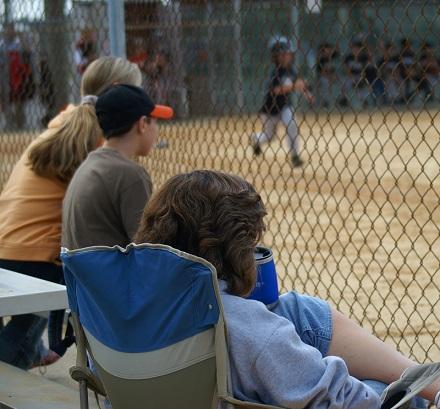

“We know it’s an emotional situation,” Dan Schuster, director of educational services for the NFHS, said in a statement. “Whether you’re a parent, guardian, grandparent, aunt, uncle or neighbor, you have an emotional attachment to someone playing in that contest or performing on that stage. We wanted a relatable, quick-hitting video that gets people to think about their actions before they attend an event and creates expectations for how they should behave.”
The video debuts in the wake of the executive director of the New Mexico Activities Association calling fan behavior at games a “crisis” and blaming it for a referee shortage.
According to the NFHS, “The Parent Seat” video can be shared on many different platforms. Downloaded directly from the NFHS Learning Center website, the piece can easily be shared on social media, shown as part of a welcome message at events, or discussed as a point of emphasis at parents’ meetings.
The video’s list of suggestions consists of both mental and physical activities for preparing for any high school or youth sports event, as well as ways to avoid negative outbursts while attending a game.
Trying to “understand the benefits” of participating in high school activities and “embrace the growth and development of your student” headline the thoughts parents can reflect on to promote a healthy, positive mindset for events, according to the video. Getting some pregame exercise or “participating in a relaxing activity” can be useful methods of relieving stress or pent-up energy, which are often manifested in foul behavior.
“The way parents conduct themselves creates teachable moments for their children — and those go both ways,” Schuster said. “They can be examples of what to do or what NOT to do at events. We want to make sure kids have a positive and memorable experience while competing, and sometimes you must show people what that should look like first. Using the items on the list as guidelines starts to create the environment we’re looking for.”
He added that the federation hopes viewers will take the video’s messages to heart, and then lead by example.
“If we can educate some of these parents, they can rub off on the others,” Schuster said. “If we can eliminate some of those ‘bad actors’ and replace them with ‘good actors,’ suddenly the scene in the bleachers is going to start looking and sounding a lot better. And most importantly, kids can just go out and play without worrying about what mom and dad are doing.”
The successful launch of “The Parent Seat” has encouraged Schuster and his staff to begin working on additional videos that address other areas of need within the culture of high school athletics and activities.

